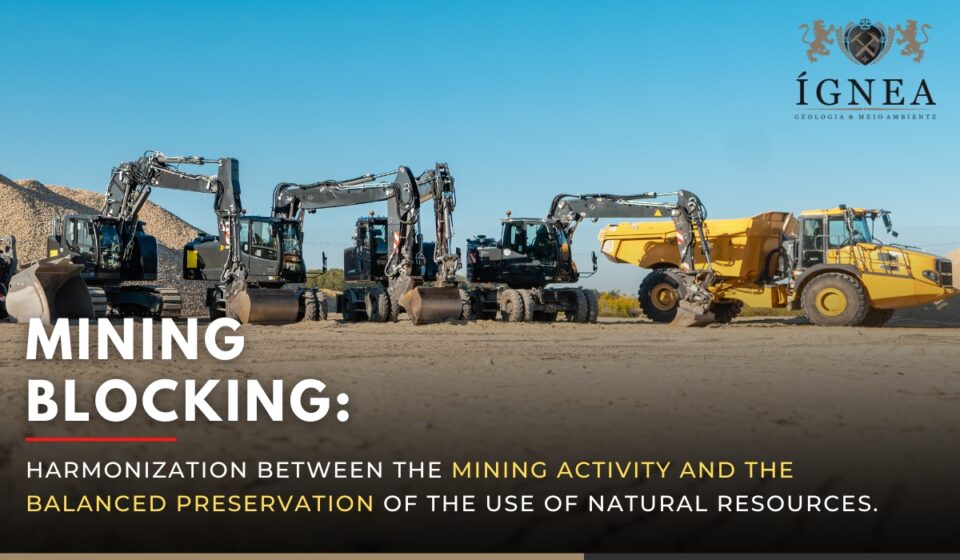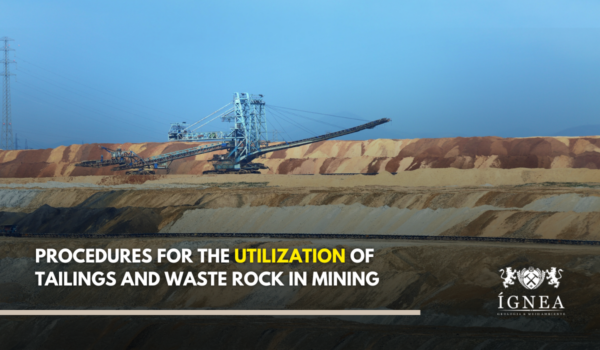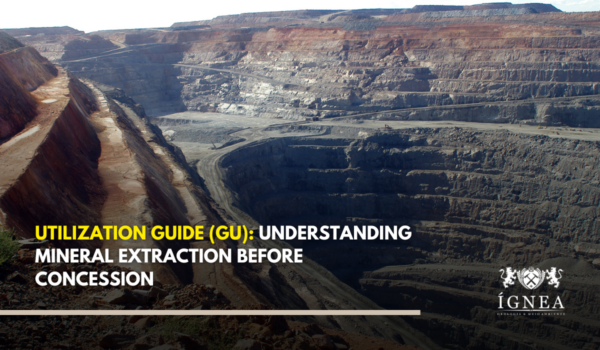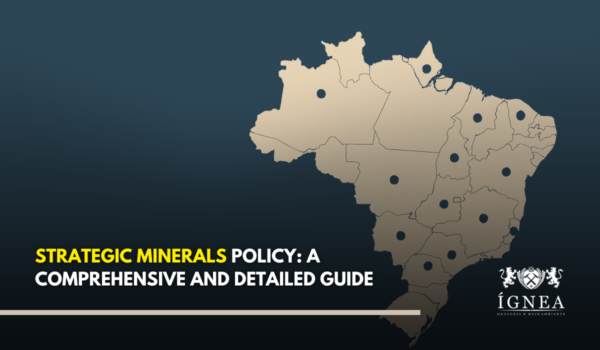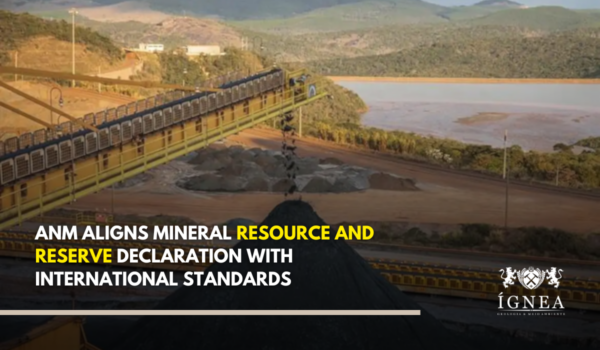Mining blocking is a crucial measure to balance the mining activity with other equally important issues that may be negatively affected by its implementation in a given region.
Mining is an activity that has always faced serious challenges in implementation in certain localities due to its environmental impacts. With its extractive nature, mining can harm other economic activities in the region.
A common example of conflict is the incompatibility between mining projects and electricity generation and transmission projects. These energy projects also require large land areas, such as transmission lines that cross several states. In many cases, these projects are planned in areas where there are already mining titles in different stages of development.
In this context, the mining blockade becomes a valuable tool to balance the mining activity with other relevant interests that may be affected by its development in certain locations. In this way, it is possible to ensure harmony between the various sectors and preserve the balanced use of natural resources.
Mining Blocking according to Brazilian Legislation
Brazilian legislation provides that the presence of activities incompatible with mining in a given location does not prevent the granting of mining titles and the development of research and mining. According to the Mining Code, mining is considered an activity of national interest and has priority due to its locational rigidity.
This means that, if another activity is already present in the area, the superficiary is entitled to compensation for the losses and rent for the occupation. In addition, the grantee also has the right to participate in the profits from the mining, as established by §2º of article 176 of the Federal Constitution.
However, there are situations in which the rule of prevalence of mining may be set aside in favor of the public interest.
Article 42 of the Mining Code provides that authorization may be refused if the mining is considered harmful to the public good or compromises more important interests than industrial exploitation. In this case, the Government has the right to refuse authorization, and the researcher is entitled to compensation for the expenses.
Art. 42 – Authorization will be refused if mining is considered prejudicial to the public good or compromises interests that surpass the utility of industrial exploitation, in the judgment of the Government. In the latter case, the researcher will have the right to receive compensation from the Government for the expenses incurred with the research work, once the Report has been approved.
If the impediment occurs after the granting of the authorization for mineral research, it may be evident that the holder of this mineral right has already incurred expenses related to the activities necessary for the identification of the deposit, evaluation, and determination of the economic viability of the exploitation.
In order to avoid losses to the holder who relied on the title granted by the Union that allowed the research to be carried out, article 42 provides that, once the research report has been approved, he must be indemnified for the expenses incurred.
According to William Freire, this compensation must be as broad as possible, covering all direct and indirect costs related to the mineral research, including the preparation phase of the research application.
Examples in the Use of Mining Blocking
A concrete example of the application of article 42 of the Mining Code occurred at the Camaçari Petrochemical Complex in Bahia, where the former National Department of Mineral Production (DNPM) invoked the provision to block requests for mining rights. This was due to the risk of contamination of the São Sebastião aquifer, an important source of water for the local population. In this way, the local authority prevented the granting of mineral water titles, in order to protect the public good and the common good.
In a second example, imagine a situation where a certain industry is responsible for generating significant employment and income for the local community, as well as contributing taxes to the public treasury.
Furthermore, imagine that this enterprise is financed by public financial institutions, such as the National Bank for Economic and Social Development or the Caixa Economica Federal.
Although it is a private industry, there is nothing to prevent the Union from assessing, based on article 42, that the interest in maintaining the industry outweighs the utility of researching and exploiting a certain substance in the area in question, especially if the substance can be obtained in adequate quantities elsewhere or if it does not have a high economic value.
Blocking Realization
The implementation of the blockade can occur autonomously or from a request by the interested party, which is more common. Although there is no specific regulation, the request of this type is based on the right of petition guaranteed by the Federal Constitution (Article 5, item XXXIV, a) and by Article 5 of Federal Law 9.784/99, which provides interested parties with the right to initiate administrative proceedings at the federal level.
This request must be accompanied by all documents necessary to prove the legitimacy of the applicant and the effective framing of his situation in one of the hypotheses foreseen in article 42 of the Mining Code.
Concluding Remarks
As can be seen, although little known, the mining blockade is an extremely useful tool for balancing mining activities, whose importance to society is unquestionable, with other equally significant interests that may be harmed by its development in a specific location.
For this reason, despite the lack of regulatory detail, its use has become increasingly common to enable or protect enterprises, new or already in operation, from future research authorizations or mining concessions and the exercise of activities permitted therein (mineral research and mining).
If the requirements foreseen in article 42 are present, it is up to each entrepreneur to evaluate, case by case, the convenience of requesting its implementation, which can also be done autonomously by the Union.
References:
Bloqueio minerário: instrumento de harmonização entre a mineração e outros empreendimentos/atividades
Please feel free to contact us with any questions or for more information about our services. We will be happy to assist you.

